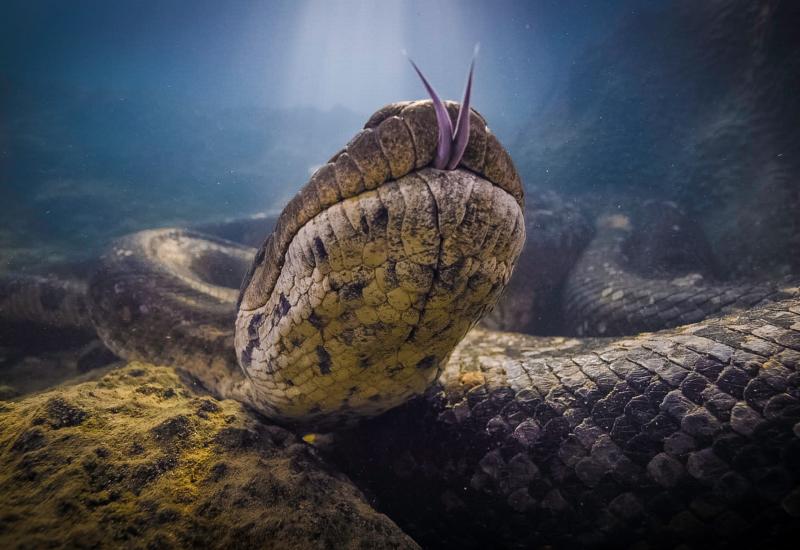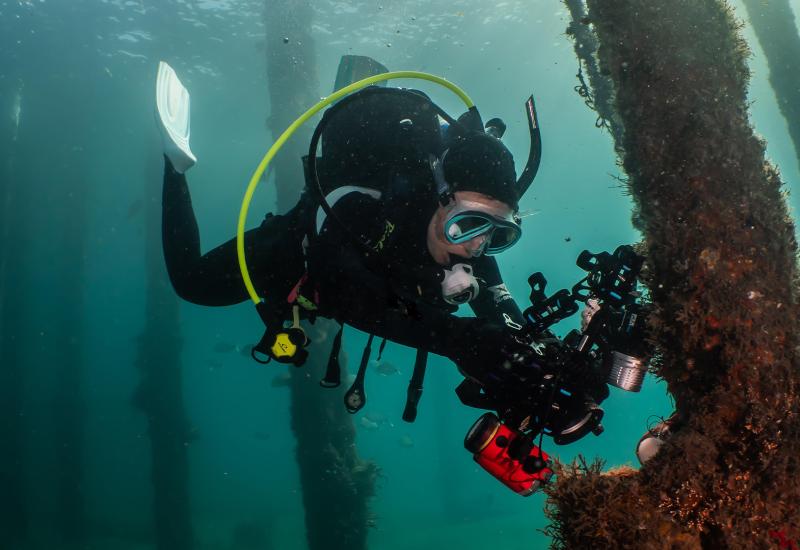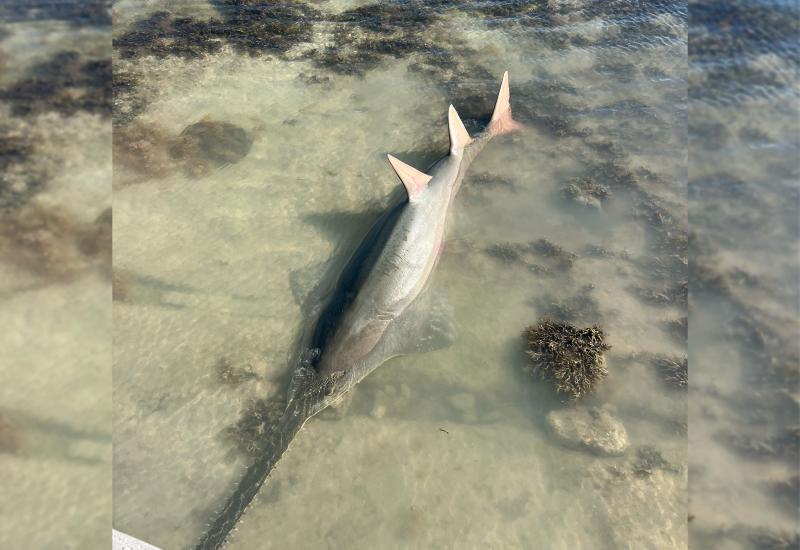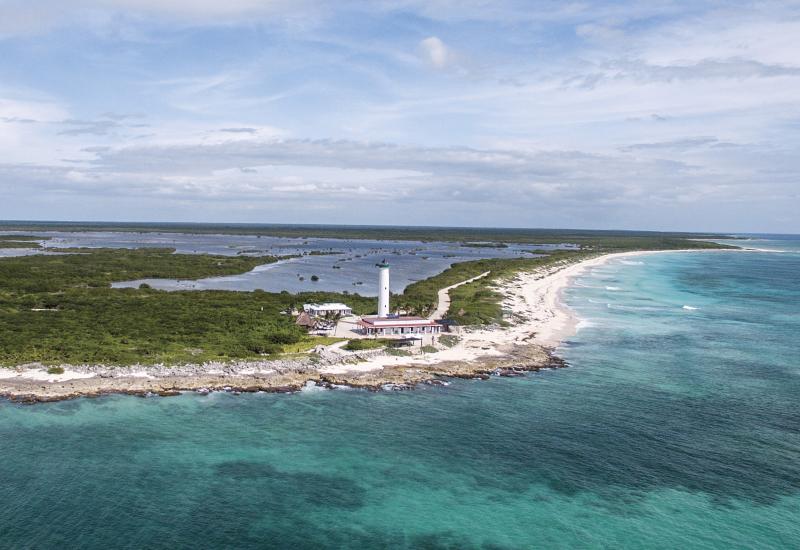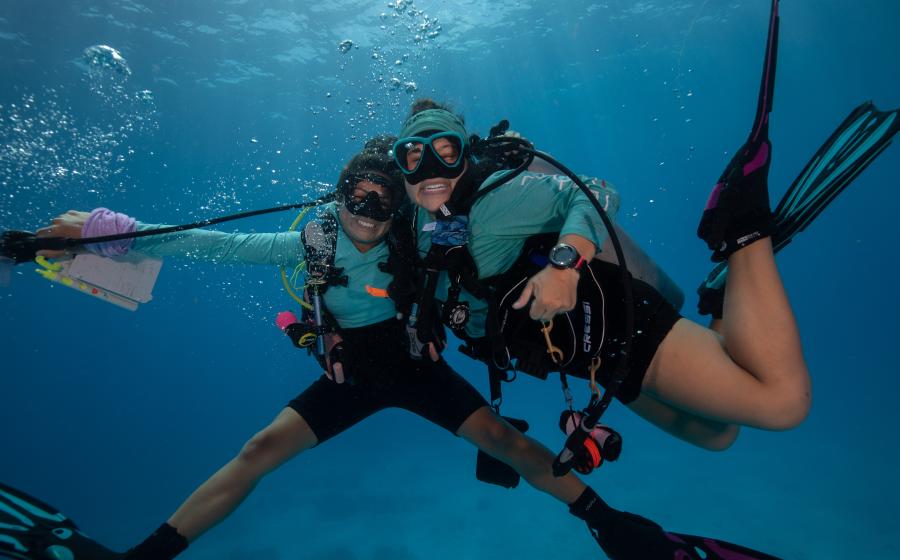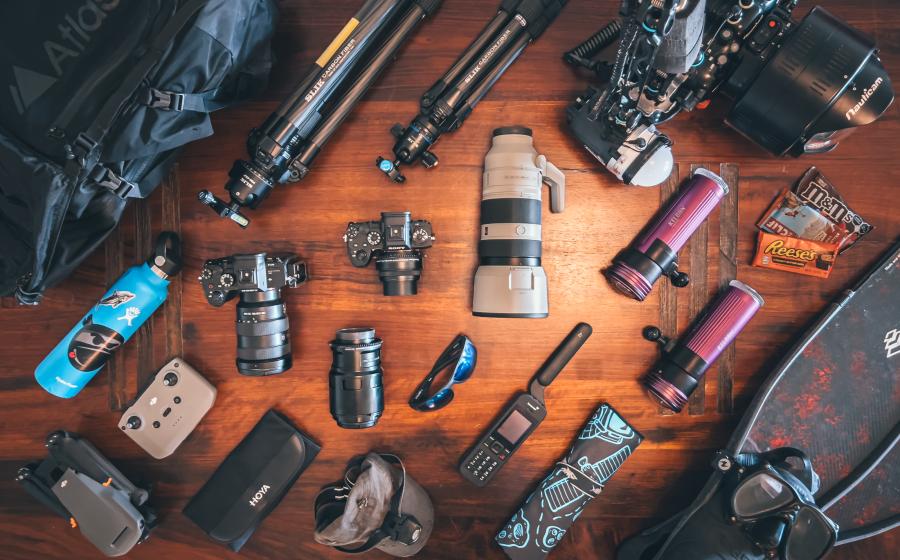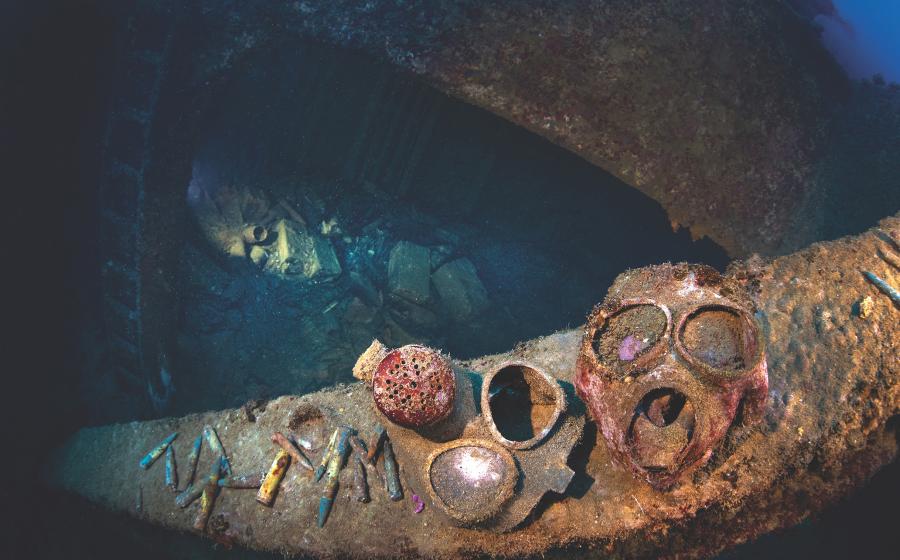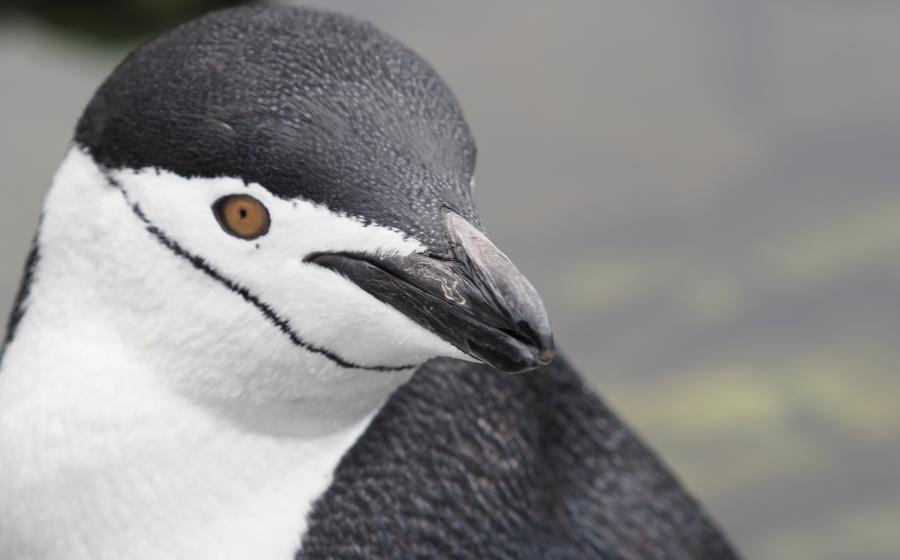Secchi Disk: A Do-It-Yourself Conservation Tool | Tracking Plankton with Citizen Science
Seafarers are being encouraged to take part in a unique global study, using a mobile phone app to record the effects of climate change.
The public science project will measure the amount of phytoplankton, minute organisms at the very start of the marine food chain, currently residing in the world’s oceans.
Scientists fear the population of the microscopic beings is in decline due to rising sea temperatures and, if true, that could have consequences for every aspect of marine life.
Plankton biologist Dr Richard Kirby, who is leading the study, said: "As the phytoplankton live at the surface of the sea they are being affected by rising sea temperatures due to climate change. A scientific paper published last year suggested the ocean's plankton population had declined by as much as 40 per cent since 1950. Like all marine creatures, phytoplankton have a preferred optimum sea temperature no matter where they are in the world and we need to know more about how they are changing in order to understand the effects on the ocean's biology.”
To check the levels of phytoplankton in our oceans, marine experts have developed a free smart phone app for sailors and fishermen to use wherever they are in the world.
Because the phytoplankton – each thinner than a strand of human hair – exist at the sea’s surface, mariners can carry out a simple experiment using an easy to make ‘Secchi Disk’.
Attached to a measuring tape, the Secchi Disk is lowered over the side of a boat and the depth at which it disappears from sight estimates the amount of phytoplankton in the sea. This depth can then be uploaded to a database using the Secchi app.
Dr Kirby added: "The Secchi Disks are still used by marine scientists to study phytoplankton but there are too few scientists to survey the world's oceans as well as we would wish. This app enables seafarers around the world to take part in a science project and if we can just get a small percentage of the global population of sailors involved, we can generate a database that will help us understand how life in the oceans is changing. It would help us learn much more about these important organisms at a crucial time when their habitat is altering due to climate change."
The Secchi app has been developed by Dr Nicholas Outram and Dr Nigel Barlow, from Plymouth University’s School of Computing and Mathematics, and the database will be maintained by Pixalytics Ltd, a company founded by Dr Sam Lavender, an Honorary Reader at the University.
You can find out more about the project at www.secchidisk.org.

Richard KirbyA Secchi Disk apparatus is a weighted, 30 cm diameter, white disk attached to a tape measure. The Secchi Disk can be made from fibreglass, plastic, metal or wood, the only restriction on its design is that it must be 30 cm in diameter and plain white —the Secchi Disk can be as simple as a bucket lid.
Seafarers are being encouraged to take part in a unique global study, using a mobile phone app to record the effects of climate change.
The public science project will measure the amount of phytoplankton, minute organisms at the very start of the marine food chain, currently residing in the world’s oceans.
Scientists fear the population of the microscopic beings is in decline due to rising sea temperatures and, if true, that could have consequences for every aspect of marine life.

Secchi Disk AppThe Secchi Disk study engages all seafarers in a global citizen science study of the phytoplankton. In just two years the Secchi Disk study has become the world’s largest marine citizen science study. (You can see the progress by clicking on DATA.)
Plankton biologist Dr Richard Kirby, who is leading the study, said: "As the phytoplankton live at the surface of the sea they are being affected by rising sea temperatures due to climate change. A scientific paper published last year suggested the ocean's plankton population had declined by as much as 40 per cent since 1950. Like all marine creatures, phytoplankton have a preferred optimum sea temperature no matter where they are in the world and we need to know more about how they are changing in order to understand the effects on the ocean's biology.”

Secchi Disk AppThe free app is called Secchi after Father Pietro Angelo Secchi, an astronomer who invented the disk device in 1865 to measure water turbidity in the Mediterranean.
To check the levels of phytoplankton in our oceans, marine experts have developed a free smart phone app for sailors and fishermen to use wherever they are in the world.
Because the phytoplankton – each thinner than a strand of human hair – exist at the sea’s surface, mariners can carry out a simple experiment using an easy to make ‘Secchi Disk’.
Attached to a measuring tape, the Secchi Disk is lowered over the side of a boat and the depth at which it disappears from sight estimates the amount of phytoplankton in the sea. This depth can then be uploaded to a database using the Secchi app.

Richard KirbySecchi Disk Project leader Richard Kirby is shown holding a Secchi Disk.
Dr Kirby added: "The Secchi Disks are still used by marine scientists to study phytoplankton but there are too few scientists to survey the world's oceans as well as we would wish. This app enables seafarers around the world to take part in a science project and if we can just get a small percentage of the global population of sailors involved, we can generate a database that will help us understand how life in the oceans is changing. It would help us learn much more about these important organisms at a crucial time when their habitat is altering due to climate change."

Richard KirbyThe Secchi Disk project is ideal for divers. It is simple to take part, it provides something to do for the person remaining on the dive boat, and the phytoplankton, which the project concerns, are an important part of the diver’s environment underwater.
The Secchi app has been developed by Dr Nicholas Outram and Dr Nigel Barlow, from Plymouth University’s School of Computing and Mathematics, and the database will be maintained by Pixalytics Ltd, a company founded by Dr Sam Lavender, an Honorary Reader at the University.
You can find out more about the project at www.secchidisk.org.

